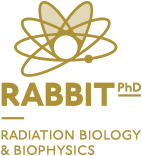Laser Technology
Laser technology group of CEFITEC was established more than a decade ago to further enhance both solar-to-laser power conversion efficiency and beam quality of the state-of-the-art solid-state lasers. The group holds the world record in solar laser collection efficiency of 41.3 W/m2 and solar-to-laser power conversion efficiency of 4.64%. Achievements were repeatedly featured by Editors of CSP Today, Spotlights on Optics in 2012, Laser Physics in 2013, Laser Focus World in 2013, 2016 and 2022, and Journal of Photonics for Energy during 2019-2023. These main achievements have been supported by the solar facility of the Laser Technology group, composed of a solar heliostat and a 1 kW solar furnace (primary solar mirror), a mechanical supporting unit, several solar laser heads and a solar tracker. The laser technology group has also a strong collaboration with the PROMES-CNRS institute (in France) since 2011, in the framework of nine funded projects by SFERA (Solar Facilities of European Research Area), SFERA-II and SFERA-III programs. The first textbook on Solar-Pumped Lasers published by the prestigious Springer-Nature was written by the Laser Technology group of CEFITEC.
Currently, the laser technology group is seeking for high solar laser performance through the development of alternative prototypes for the simultaneous pumping of several laser crystals with broader absorption spectrum in the visible region. The goal is to enable the simultaneous emission of multiple renewable beams with enhanced thermal performance and efficiency. The study of innovative solar concentrators to substantial improve the solar energy flux and, consequently, the solar laser pumping efficiency, as well as storing IR solar heat, have also been an important subject of research.
Thanks to the scientific expertise and dedicated facilities of the laser technology group, it is now possible to carry out advanced solar laser research and postdoctoral, Ph.D., MSc. degree student trainings, essential to ensure its further progress in renewable laser technologies in the next decade.
Our main achievements can be consulted in: https://www.cefitec.fct.unl.pt/lasers



